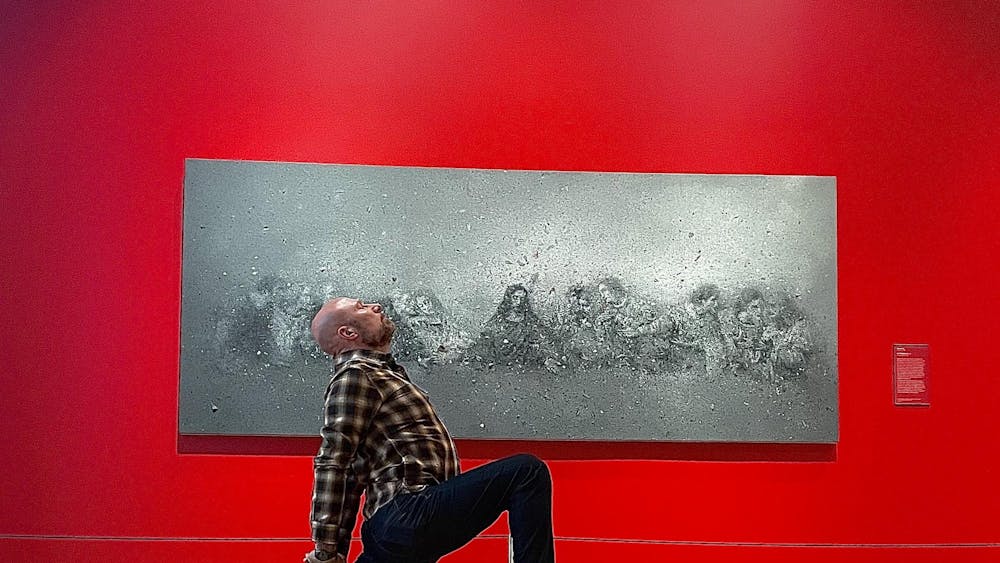By now, a wide array of critics of President Donald Trump’s recent executive order on refugees — including a passel of United States Catholic bishops — have explained with force and perspicacity how the action amounts to a failure of charity, hospitality and justice. Among the many baneful dimensions of the order is President Trump’s rhetorical insistence that Christians are to be favored and Muslims disfavored for entry into the U.S.
In fairness, the order itself does not privilege Christians or bar Muslims per se, and, in fact, makes religious persecution a factor that enhances a refugee’s case for entry — arguably a positive development that has historical precedent in the refugee policy of the United States. Even this gain, though, is offset by an indefinite bar of all refugees — whatever their religion — from Syria, one of the worst sites of religious persecution in the globe.
More troubling still, though, are Trump’s many statements that have advocated banning Muslims from immigration to the U.S., spoke of Muslims in derogatory terms and called for privileging the protection of Christians. These statements, undoubtedly designed to please the president’s most ardent supporters, are unjust and unwise. Making this case and denouncing the order are numerous leaders of Catholic, mainline Protestant and evangelical churches and of Christian organizations dedicated to relief, development and the alleviation of persecution.
I applaud the protest of these leaders as co-director of a project, “Under Caesar’s Sword,” whose purpose is to promote solidarity with the world’s persecuted Christians. Based jointly at Notre Dame’s Center for Ethics and Culture and the Religious Freedom Institute in Washington, D.C., and funded by a grant of $1.1 million from the Templeton Religion Trust, “Under Caesar’s Sword” is the world’s first systematic global investigation of Christian responses to persecution.
The project is timely and urgent. Nearly 3/4 of the world’s population lives in a country where religious freedom is strongly curtailed, and Christians suffer persecution and discrimination more than people of any other faith. The advocacy group Open Doors reports that persecution only increased in 2016, when some 90,000 Christians were killed for their faith and some 215 million Christians faced persecution. Among the worst violators are the governments of North Korea, Iran, Saudi Arabia, China, Eritrea and India, as well as the Islamic State.
“Under Caesar’s Sword” reports the reality of this persecution but more centrally conveys the range of Christian responses to it, many of these hopeful and courageous. A better understanding of these responses can help the rest of the world, not least a Catholic university, stand in solidarity with persecuted Christians. On Thursday, Bishop Kevin C. Rhoades will be celebrating a mass for persecuted Christians at 5:15 p.m. in the Basilica of the Sacred Heart, followed by the screening of a short documentary film on the subject in Washington Hall at 6 p.m.
Solidarity with persecuted Christians, though, in no way justifies the exclusion of vulnerable Muslims from sanctuary in the U.S. or indifference to any human right of Muslims. Religious persecution of any kind and against anyone is a violation of the human right to religious freedom, which several major human rights conventions articulate. The Catholic Church committed itself to this human right definitively in its landmark declaration of 1965, “Dignitatis Humanae,” rooting religious freedom in the dignity of the human person and his or her search for religious truth.
Muslims themselves suffer the violation of religious freedom in great numbers. In some countries, Muslim minorities like Shias, Ahmadis and Sufis are persecuted at the hands of Sunni Muslim governments. Elsewhere, Muslims face repression at the hands of governments dominated by other religions, like Hindu India and Buddhist Burma, or secular governments, as is the case in China, Syria, Egypt, Turkey and several Central Asian republics. Muslims have faced harsh discrimination in the West, too. Even in the United States, which is relatively tolerant and open to Muslim assimilation, Muslims have been denied the right to build mosques and attacked by other citizens, as they were in a wave of incidents following President Trump’s election.
This is not to deny the frequency of violence committed by Islamist militants in the U.S. and around the world. President Trump’s policy, though, will do little to reduce this violence. The vetting of refugees is already remarkably stringent. The U.S. has accepted some 750,000 refugees since Sept. 11, 2001, not a single one of whom has committed a terrorist attack.
Worse, the policy is likely to set back, not privilege, the cause of persecuted Christians. First, it undermines the credibility of these Christians’ appeals to universal human rights, makes their protests look like special pleading and hinders their already difficult task of gaining sympathy from human rights groups, the mainstream media, Western governments and international organizations.
Second, the policy bequeaths recruiters of terrorists a perfect argument, confirming their contention that the United States wishes to fight a clash of civilizations between the West and Islam.
Finally, the policy suffocates a narrative that deserves far more attention: that of solidarity between Christians and Muslims in common cause against violence and persecution. One of the major findings of “Under Caesar’s Sword” is that Christians often respond to persecution by forming bonds with people of other faiths as a bulwark against extremists. “Under Caesar’s Sword” scholars document such cooperation with Muslims in Nigeria, Kenya, Syria, Iraq, India and Indonesia.
After Islamist attacks on Coptic Churches on New Year’s Day in 2011 in Alexandria, Egypt, Muslims joined hands in a human shield around Coptic churches during their worship services, and Christians likewise surrounded mosques. In the U.S., when Florida pastor Terry Jones burned the Quran on the ninth anniversary of the Sep. 11, 2001 attacks, Christian, Jewish and Muslim leaders joined to demonstrate against Jones’ deeds.
We best promote religious freedom for one faith by doing the same for all faiths, and when we promote the religious freedom of one faith to the exclusion of others, we undermine our efforts even for that one faith.
Daniel Philpott
professor of political science
Feb. 20









